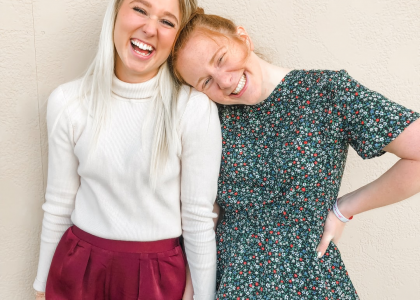When you live with depression and anxiety relationships are about percentages.
It’s been another interesting week not just in the Diary, but internationally. Since the US Supreme Court’s decision on ‘gay marriage’ was announced there’s been a lot of discussion about: what is a relationship, how and what defines marriage, and what is the ‘right’ thing?
Living with depression and anxiety has a tendency to bring with it a need for stability. Some kind of ‘normalcy’ to help keep those things we fear at bay and help us remain ‘in control’. It’s a difficult preoccupation with safety that determines our willingness (or lack there of) to participate in life’s more notable challenges.
It’s possible if you’re gay and depressed you’ll be pleased that (in the US) you can now enter into a recognised marital relationship. If you’re heterosexual and depressed you’ll possibly feel that letting ‘those’ people marry will destabilise your normalcy. From my perspective I simply feel that relationships are tricky, organic things that do not conform to carefully worded legislation and ideals.
I’ve been locked in a life and death struggle with normalcy for as long as I can remember and I’m reluctant to disclose that I’m yet to win even the smallest skirmish! My carefully constructed perception of the world is encapsulated within an invisible force-field that has recently become less reliable.
I’ve spent a lot of time playing in a business that relied heavily on the contractual obligations of each party. Unfortunately, it was only when the relationship soured that people would extract their copy of the contract from behind the bookcase and look for the other party’s failures. After dusting off the covers and reading through the carefully worded terms and conditions, a series of legally worded letters would ensue until the matter was settled in a ‘no winner’ settlement. An outcome designed to minimise the potential damage rather than any mutually beneficial outcome that satisfies each party.
For a long time I have provided advice to people entering to contractual business relationships. I carefully explain that no relationship is a 50/50 partnership and that making a relationship work is more complicated that they think. In fact, I tell them that they will be expected to bring more than 50% to the table to which the usual response is a confused and somewhat affronted demeanor. That they might be asked to do more than their fair share and that the ‘other party’ might be getting a better deal is apparently not all that palatable.
I’ve always applied this same logic to personal relationships. When I made a promise to my husband at the time we were married, I didn’t promise to do my ‘fair’ share. I didn’t promise to remain ‘faithful’ until being unfaithful felt better. I didn’t promise that I would ‘love’ him until I could transfer my love to someone else. The promises I made were made in the belief that I would bring 100% of myself into the marriage and that bringing it meant making sacrifices.
Perhaps I have the privilege of middle class conservatism to bind me to my promises. Perhaps it’s my values based life philosophy that keeps me attuned to how my behaviour affects others, or maybe I’m just too stupid to know any different. But no matter what keeps me in orbit, I’ll always believe that every ‘contractual obligation’ requires a 100% commitment from both parties.
No matter the relationship or the parties the 50/50 rule just doesn’t hold up. An expectation that you are only required to contribute to 50% of the relationship and only on the proviso that the other party provides the other 50% seems to me like only half a commitment and, because of it’s necessary focus on what others are doing and not what we are doing, appears set up to fail.
And, the cautionary tale in all this is that life continues to happen in and around every relationship. A perfect relationship model is difficult to conceive and difficult to live out. It’s loaded with misguided expectations, foolish needs and human frailty and because of this, we must proceed with caution.
Love should never be reliant on legislation and ideals but on willingness and commitment.
From H. Jackson Brown, Jr: Love is when the other person’s happiness is more important than your own.
If you need to talk to someone NOW call Lifeline on 13 11 14.

Deb Shugg is an awarded businesswoman, wife & mother, author and a sufferer of depression and anxiety.
If you need help to deal with your symptoms see your doctor.
(Abuse of another person is NEVER okay. If you are being abused or, if you are an abuser please seek help.)






Recent Comments